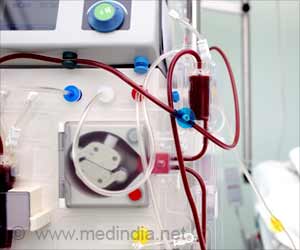In addition to raising awareness about the burden of kidney disease and importance of kidney health for everyone, this World Kidney Day focuses on preventive interventions to forestall the onset and development of the disease.
Highlights:
- World Kidney Day is observed on the second Thursday of March every year and in 2020 it is being celebrated on the 12th of March
- The aim of the health day has been to raise awareness about the burden of kidney diseases and the importance of kidney health for everyone
- In 2020, the focus is on interventions to prevent the onset and progression of the disease
Chronic Kidney Disease (CKD) – an Overview
Progressive loss of kidney function over a period of time is termed as Chronic Kidney Disease. Kidney failure at a point can become life threatening and would require dialysis or transplant to save one’s life. Diabetes, high blood pressure other health disorders and social conditions like poverty and occupational hazards are the leading risk factors that can lead to CKD. One in ten adults has CKD and around 850 million people around the world are affected by it. By 2040, CKD is projected to become one of most common causes of death as the global burden of it has been steadily increasing. Cost of dialysis and transplantation account for a significant part of the annual healthcare budget spent though it only manages to reach less than 0.03 percent of the total population in many high-income countries. On the other hand, in low and middle income nations, access to treatment options remains even a bigger challenge.Read More..
CKD - Things to Remember:
- Diabetes and hypertension are the main risk factors for CKD
- Early chronic kidney disease has no symptoms
- Regular urine and blood tests are required to understand the progression
- Kidney disease is treatable and early diagnosis helps in effective treatment and postponement of the disease progression
- Any form of kidney disease may progress to kidney failure
World Kidney Day 2020 – Preventive Intervention
The 2020 World Kidney Day campaign calls for preventive interventions to put an end to the onset and progression of kidney disease.Prevention of the disease is categorized under into the following heads:
(a) Primary Prevention: interventions to prevent the onset of the disease before the disease process commences
(b) Secondary Prevention: preventive measures that aid in early diagnosis and timely treatment of the kidney ailment to avoid running into complications
(c) Tertiary Prevention: involves managing of the disease after it is well developed, to prevent progression of the disease and occurrence of severe complications
Modification of risk factors like diabetes and hypertension, harmful diet, detection of abnormalities of the kidney and urinary tract and understanding nephrotoxicity levels of drugs comprise primary prevention of kidney disease.
Promotion of healthy lifestyle to include physical activity and healthy diet, screening those who are at risk by means of urine and blood tests and record the data in CKD registry are part of primary preventive intervention.
In those with pre-existing kidney disease, achieving blood pressure optimization and glycemic control through low salt and protein, plant-based diets and pharmacotherapy is part of the secondary prevention. Management of co-morbidities including uremia and cardiovascular diseases is of the highest priority in patients with advanced CKD, the focus of tertiary prevention.
Tertiary prevention for patients with advanced chronic kidney disease include management of co-morbidities such as uremia and prevention of cardiovascular disease progression.
Why is Prevention Important?
The rising levels of CKD cases worldwide are of great concern which makes preventive measures crucial. Preventive measures are aimed at root causes by way of primary prevention, making them significant as CKD is associated with high costs. Reducing the burden of kidney disease could be achieved through raising awareness about risk factors and preventive measures related to kidney disease by educating people.Healthcare professionals belonging to nephrology fellowships and other non-specialist training should be recommended promotion programs, while awareness programs must be organized for the general public and partnerships forged for patient empowerment for realizing the importance of the prevention approach.
Mission for 2020
Advocating for ways to promote preventive measures in every country is the need of the hour to tackle kidney disease. The focus should be on:- Reestablishing attention on primary care
- Raising awareness and educating about the approach, including patient empowerment and cross-specialty training
- National non-communicable disease programs for comprehensive and integrated services, adopting CKD prevention to improve early detection and tracking of CKD
- Collaboration of government, society, policymakers and other relevant stakeholders to promote prevention
- Prevention to start with education: What is required is a renewed focus on primary care, awareness raising and education including patient empowerment and cross-specialty training
- National Non Communicable Disease Program to include CKD Prevention Guidelines - This can help with early detection and tracking of CKD at country level
- Working Together for Prevention - Whole-of-government, whole-of-society, health in all policies, multi-sectoral collaboration to promote prevention of kidney disease
References:
- World Kidney Day - (https://www.nhp.gov.in/world-kidney-day_pg)
- 2020 WKD Theme - (https://www.worldkidneyday.org/2020-campaign/2020-wkd-theme/)
Source-Medindia
















